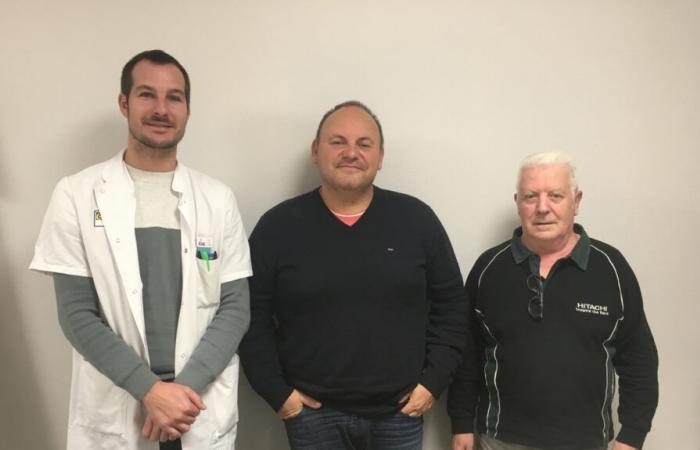Followed by the addiction department of the Niort hospital center, on the occasion of tobacco-free month, Olivier Pelletier and André Bollerot agreed to talk about the difficult, but not impossible, quest to quit smoking.
Ten days ago, Olivier Pelletier suffered a heart attack. For the 51-year-old former truck driver, now a logistics transport trainer, it was a turning point. “Either I continue smoking and I know what’s happening to me, or I stop and I can live a little longer. The choice is simple,” he points out.
Ten years earlier, the fifty-year-old had said quit smoking for the first time, even though he had been smoking since middle school. “Due to events in my personal life, I started smoking again five months ago”he says. In the meantime, in 2019, he also managed to get rid of an addiction to alcohol.
The beneficial changes of quitting smoking are still present in Olivier’s mind. “After two weeks, I had regained tastes and smells that I had lost”he testifies.
In their journey, each smoker is confronted with situations that will put their smoking cessation to the test. “For me the hardest part is the social side, in festive contexts with friends,” admits Olivier.
Identify relapse traps
Anthony Jean, addiction nurse, bounces back. “One of the objectives in addiction monitoring is to help the patient identify situations of potential relapse, then to avoid them, sometimes permanently,” he explains.
Making the decision to quit smoking is one thing, but you have to stick with it. “ You have to occupy your mind. For example, immersing yourself in a passion. For me it’s carp fishing », says Olivier.
For André Bollerot, present at his side, it is fishing, walking and pétanque that allow him to avoid relapsing. The retired delivery driver stopped smoking three years ago. “I was a smoker from the age of 20 to 60,” he indicates. He had started smoking during his military service, like many men of his generation.
Harder to quit tobacco than alcohol
André had entered the addictology department of the Niort hospital center to initially treat his alcohol dependence. He then attacked tobacco use, when he smoked two packs a day. “It was much harder to quit smoking than to quit alcohol”he points out.
During her withdrawal period, it was sometimes difficult to resist temptation. “What could make me relapse was smelling smoke. When I came across someone who was smoking, I moved away from them otherwise I was able to ask them for a cigarette”he says. During his treatment, André participated in three weeks of treatment, consisting of individual interviews and group activities. “The support groups helped me a lot. » He also managed to quit using patches, a nicotine replacement treatment. André was fortunate to be supported in his approach by his partner. “It wasn’t easy for her either,” he admits.
The hardest part seems to be behind him. For his part, Olivier Pelletier is preparing to begin follow-up at the addiction department of the Niort CH, determined to also eliminate tobacco from his life.
On November 18, from 8:30 a.m. to 4:30 p.m., in the hospital reception hall, professionals from the addiction liaison and care team (Elsa) are organizing an open support and prevention day to everyone.






